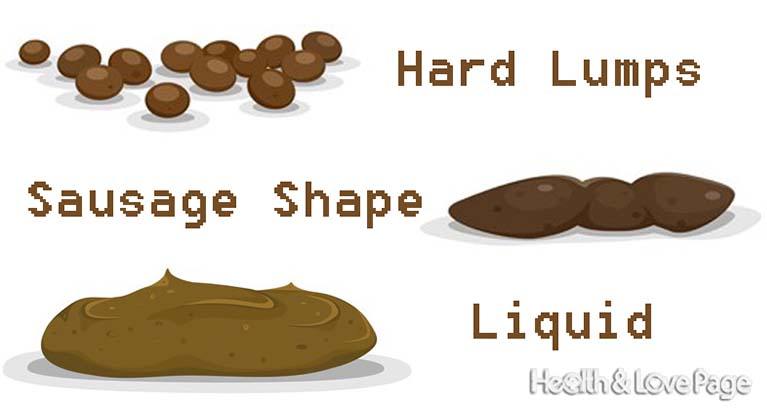One of the things we never want to talk about is the poop. We all do this but, it is very clear that it is not an everyday conversation. We decided to put all the embarrassment aside and really get into this dirty and common thing. It might sound a bit strange, but you need to observe your dump. This should be an everyday habit.

We all want to just get done with it and flash very quickly so that we do not see the mess we had done behind and spear ourselves from unnecessary view.
But, this is a mistake since we flush all the valuable information which can help us regulate the stool.
You may wonder how? The poop tells everything we need to know.
We can get detailed insight about our digestive system and its function, as well as our overall health.
It is great idea to examine your poop, since in this way you will be aware of your health and will show you how to change your diet regimen.
You are not sure what is the thing you need to look for? Well, here is a list of things you should not miss.
The Perfect Stool
If your elimination process in the morning consists of these elements, then it is all right:
- A banana shape
- Not messy and easy to clean
- Not sticked to the toilet
- A brown color
- Not too much smelly
- Every time the same no matter what you ate
Imbalanced Stool
- Green or yellow stool but the reason is not green vegetable
- Mucus in the stool not very pleasant to watch
- Greasy or shiny stool
- Black stool
- Stool with a color of clay
- Blood in the stool
- Stool with some pieces of undigested food
What does the color of your poop mean?
You already know the answer form the previous list, and that is the color brown. You may see other colors as well including green, red, white, yellow or black.
Other colors that appear, not including the food consumption or any medications causing temporarily change like beets, can indicate some change in our body and this needs and observation. Look at the possibilities from these shifts:
- The red poop can occur because of the bleeding in the lower GI.
- The green one can be a Crohn’s Disease.
- The yellowish can lead to parasites or some gallbladder problems.
- White might be a pancreatic problem or indication of liver disease.
- The black one can be bleeding in the upper GI.
Visit your doctor and explain the color of the stool, if this is prolonged for a longer period.
What is the exact number of times we should do it?
This depends, mainly on the diet you have, the activities through the day and your age, it can be from three times a day to three bowel movements every week, according to WebMD. There are other factors for proper bowel function, not just a regular pooping and they are being able to:
- Sit on the toilet for a minute and pass the bowel motion.
- Do the job without pain or straining on the toilet or even have troubles when passing it.
- Remove all waste from the bowel and try not to go back to do the same thing.
Tips and tricks for achieving the perfect poop.
- Try to chew your food at least 27 times on a bite. The form should be pasty so that you can swallow it.
- Try not to overeat since you can overload the digestive system. Instead eat until you feel full.
- Avoid gluten in your diet, the main sources being barley, wheat, rye, spelt and numerous grains.
- Consume fresh and whole foods like organic fruits and vegetables which can give us fiber and healthy nutrients. The fiber is very good for the digestive process, that is why you should take it from produce not from grains.
- Stay away from excess sugar (fructose), artificial sweeteners, MSG, chemical additives, lot of caffeine and all that processed food, since they can cause problems to the function of the immune and digestive system.
- Add naturally fermented foods in your diet like kefir, pickles, sauerkraut, in order to boost the intestinal flora. Also, you can add some probiotic supplements if you think that there is no beneficial bacteria in your diet.
The pooping differs so much in other countries around the world, since the diet is not the same and people feel much more healthy than people from North America.
Via: David Wolfe
